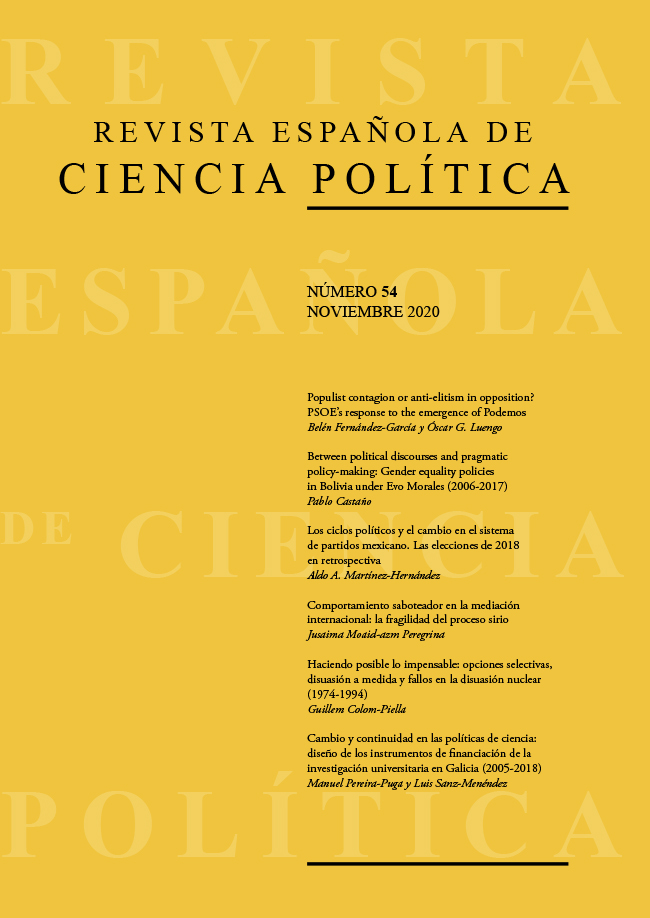Between political discourses and pragmatic policy-making: Gender equality policies in Bolivia under Evo Morales (2006-2017)
DOI:
https://doi.org/10.21308/recp.54.02Palabras clave:
populismo, género, políticas públicas, Bolivia, organizaciones de mujeres, feminismoResumen
Este artículo investiga los procesos de elaboración de las políticas de igualdad de género bajo Gobiernos populistas, centrándose en el caso paradigmático del Gobierno del MAS en Bolivia. A través de entrevistas y análisis documental, se examina cómo el MAS aplicó sus concepciones de pueblo y élite a las organizaciones de mujeres que intervinieron en procesos de elaboración de políticas de igualdad de género, acusando a las ONG feministas de ser parte de la élite y alabando las organizaciones sociales de mujeres indígenas como representantes del pueblo. Sin embargo, el Gobierno incluyó a las ONG feministas en los procesos de elaboración de políticas, lo que muestra una contradicción entre el discurso populista antiélite y el pragmatismo en la elaboración de políticas.
Descargas
Descargas
Publicado
Cómo citar
Número
Sección
Licencia
Derechos de autor 2020 Pablo Castaño Tierno

Esta obra está bajo una licencia internacional Creative Commons Atribución-NoComercial-SinDerivadas 4.0.






